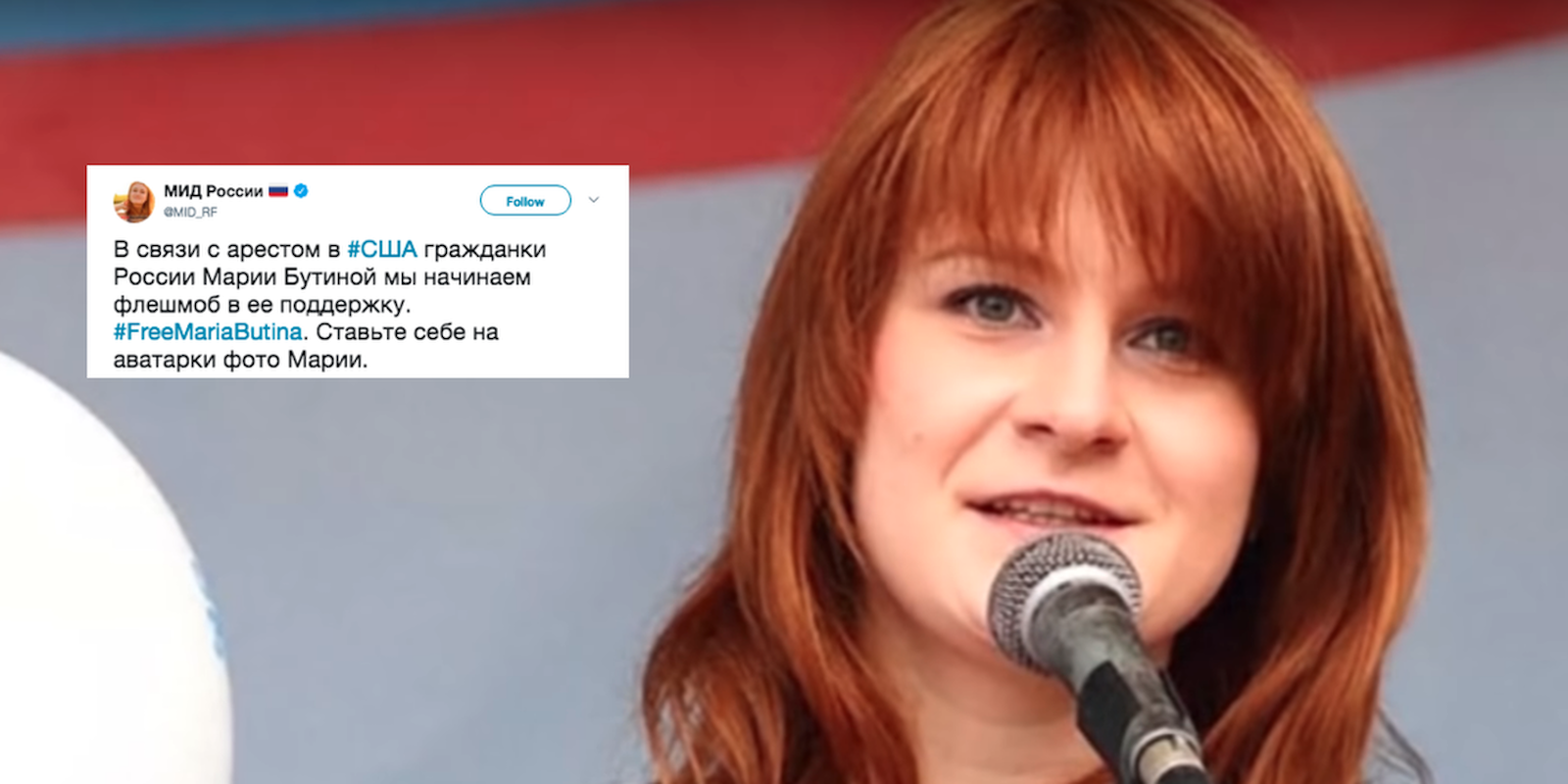Swarms of Kremlin-oriented Twitter accounts are reportedly astroturfing a social media campaign started by Russia’s Foreign Ministry in support of Maria Butina, an accused Russian spy and National Rifle Association member with close ties to the Republican Party who was arrested this week.
Hamilton 68 is an analysis project that tracks the activity of accounts that have been linked to Russian influence operations, and on Friday it recorded a 2,800 percent increase in accounts boosting #FreeMariaButina.
Butina, a Russian national and pro-gun activist, was arrested by the FBI on Sunday and indicted a day later for conspiracy and being a foreign agent. The Justice Department has accused the 29-year-old of trying to “exploit personal connections with U.S. persons having influence in American politics in an effort to advance the interests of the Russian Federation” by “infiltrating organizations having influence in American politics.”
To help raise a public awareness over the arrest, the Russian foreign ministry urged followers on Thursday evening to change their profile pictures to an image of Butina and launched the hashtag.
В связи с арестом в #США гражданки России Марии Бутиной мы начинаем флешмоб в ее поддержку. #FreeMariaButina. Ставьте себе на аватарки фото Марии. pic.twitter.com/ekhh9ayvGA
— МИД России(@MID_RF) July 19, 2018
Coincidentally, or not, usage of #FreeMariaButina spiked around that time on Hamilton 68’s analysis dashboard of content tweeted by what are likely bots and trolls.
The purpose of using large networks of fake accounts is to manipulate social media algorithms and amplify a narrative, creating the sense that there is much wider grassroots support for a campaign or narrative than there really is.
After reports that Russia had tried to meddle in the 2016 presidential election, the Alliance for Securing Democracy helped fund and organize Hamilton 68 to monitor and study influence operations.
According to a complex framework alluded to officially for the first time in February indictments made by special counsel Robert Mueller, investigating Russian operations, swarms of Twitter personas play at least a small role in how the Kremlin sought to meddle in the 2016 presidential election and tries to steer current political conversations had in the U.S.


